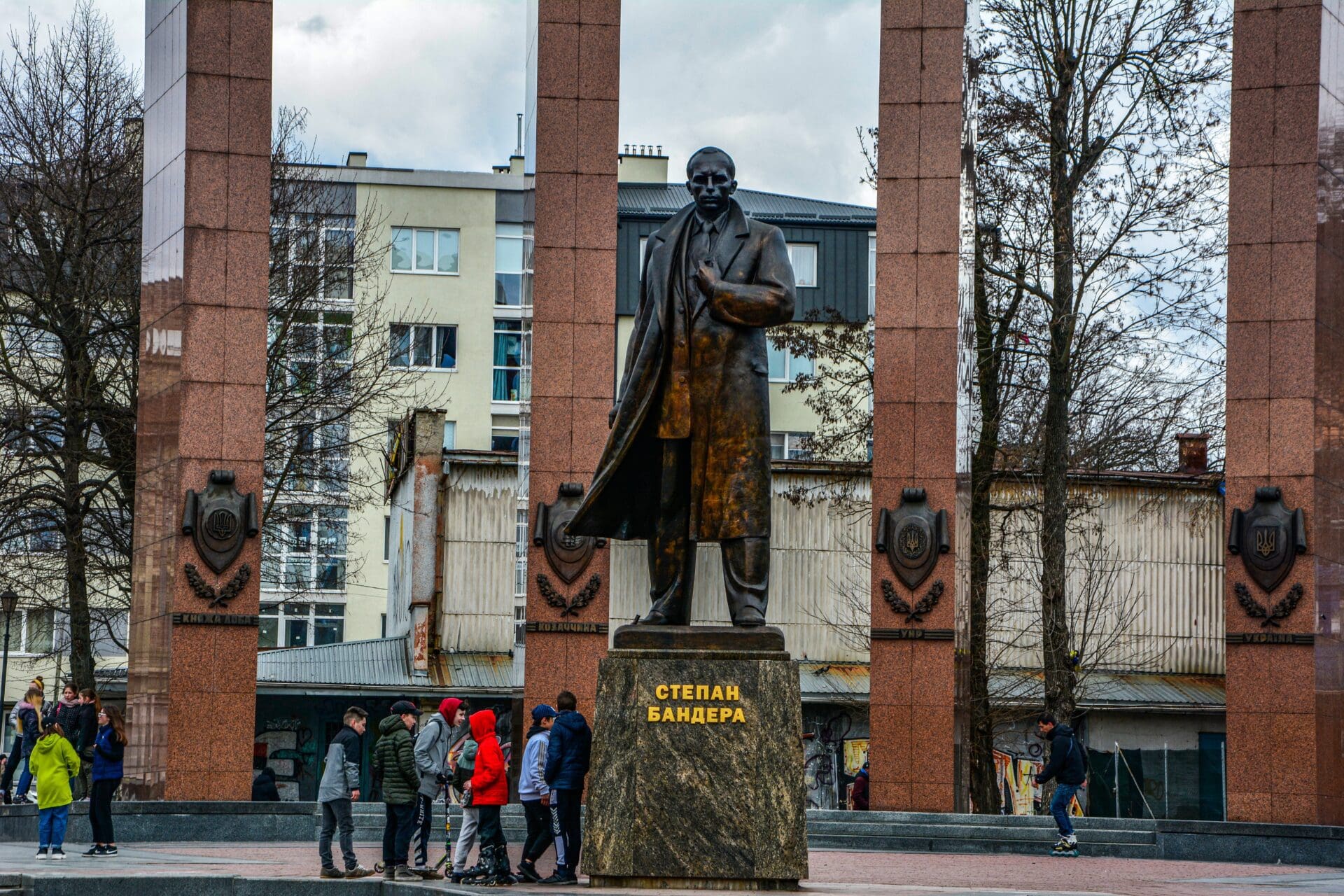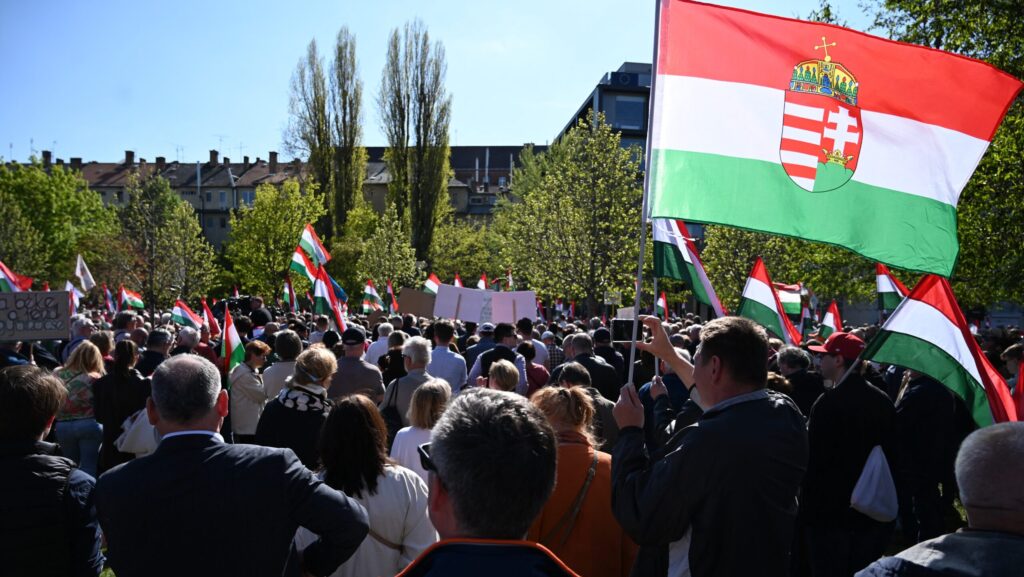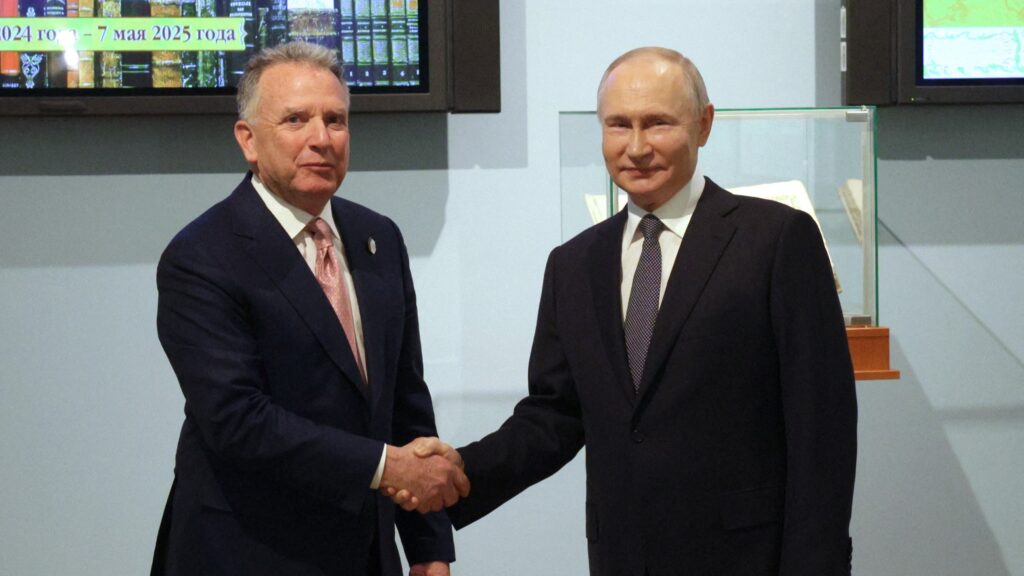In anti-Ukrainian Russian propaganda, Stepan Bandera is usually held up as proof of Nazism in Ukraine. In Ukraine, on the other hand, while Bandera is still perceived as somewhat controversial, since the Russian aggression his popularity has been on the rise. Given Bandera’s symbolic importance and the use of his character to shape memory politics both in Russia and in Ukraine, gaining a deeper insight into his figure is key to a better understanding of the conflict happening across Hungary’s eastern borders. Here is who Stepan Bandera was and how he is remembered.
Stepan Bandera was born in 1909 in Galicia (Austro-Hungary at the time). He grew up in the tumultuous years of World War I, which had a significant impact on his views on Ukrainian nationalism. As a child he witnessed Galicia’s brief independence as part of the West Ukrainian People’s Republic, with his father joining the armed forces to fight for his nation. Soon, however, the West Ukrainian People’s Republic lost the war to Poland, and Galicia was integrated into Eastern Poland. After the world war, the young Bandera stayed in Galicia until 1928, when he moved to Lviv and enrolled into the agronomy programme of the local polytechnic. In Lviv he continued his political activism for Ukraine, which he had been engaged in since his school years. The Organization of Ukrainian Nationalists (OUN) was established in 1929 and Bandera soon became its leader, personally overseeing and orchestrating the radical propaganda of the group and even organising acts of violence against the Polish authorities to fight for his country’s freedom.
Stepan Bandera was heavily involved in the assassination of the Polish minister of interior
As a radical and active Ukrainian nationalist, Stepan Bandera was heavily involved in the assassination of the Polish minister of interior for which he was arrested along with other OUN members. His trial started in 1935, and he was first sentenced to death, but the sentence was later commuted to life imprisonment. At the time, Poland was making considerable effort to repress the Organization of Ukrainian Nationalists that orchestrated a number of acts of terror during their fight for independence. However, the Polish government’s efforts failed and by the beginning of World War II the status quo seemed to have changed in the nationalists’ favour. Poland collapsed and Bandera walked free. He then carried on with his political activism as part of the more radical OUN-B (OUN-Bandera, which in 1942 established the Ukrainian Insurgent Army or UPA), working with the Nazis to prepare the assault on the Soviet Union. During the Nazi occupation, Ukrainian ultranationalist organisations were collaborating with the Nazis working as policemen and fighting as volunteers in various battalions. There is evidence that they were also involved in the murder of civilians, including Jews and Poles.
In 1941, the OUN-B declared Ukraine’s independence, but Adolf Hitler would have none of it. Days after the German invasion of Lviv, Bandera was arrested and sent to a concentration camp. From this point on, acknowledging that the Nazis would not support the creation of an independent Ukraine, the OUN-B fought two authoritarian regimes simultaneously: Nazi Germany and the Soviet Union. murdering anyone who stood in the way of Ukraine’s independence. Bandera was released only in 1944. He emigrated to Germany, and lived in Munich, where he tried to reorganise the OUN, but there was considerable disagreement within the ranks of the organisation on how to fight for Ukraine’s independence against the Soviet Union. Realising that Ukraine alone is not strong enough to gain its independence from the USSR, Bandera became involved in the creation of the Anti-Bolshevik Bloc of Nations—for which the KGB sought to assassinate him. Eventually, on 15 October 1959, the KGB managed to murder him in his own house.
As a symbolic move, in 2016 the Moscow Prospect in Kyiv was renamed to Bandera Prospect
The cult of Bandera soon emerged in Western Ukraine and was only strengthened after the dissolution of the USSR. By now there are streets named after him, and statues stand in his honour. Eastern Ukrainians, however, who are of more pro-Russian sentiments than their Western counterparts, have always viewed Bandera as a Nazi collaborator and disputed his role in Ukrainian history. As a symbolic move, in 2016 the Moscow Prospect in Kyiv was renamed to Bandera Prospect. Quite revealingly, while Viktor Yushchenko, the former Ukrainian president awarded Bandera the ‘Hero of Ukraine’ title, it was soon revoked by his successor, pro-Russia President Viktor Yanukovych. While Ukraine is still greatly divided over how to judge Bandera, the tide has turned in his favour since the Russian invasion. Since the beginning of the war, opinion polls have registered a steady growth in Bandera’s popularity.
It is crucial to mention, however, that the collective memory of Bandera is highly selective. He is widely remembered for going to prison and being murdered by the KGB, but it is lesser known in Ukraine that the nationalist organisation that idealised him (and that he was a leader of) collaborated with the Nazis. While Bandera personally was not involved in the murder of civilians, the OUN was (and Bandera never condemned that). As we already pointed out in an earlier Hungarian Conservative article, both Poles and Jews were killed by OUN fighters (during World War II, 1.5 million Ukrainian Jews were murdered). Therefore, viewing the OUN’s collaboration with the Nazis purely as the result of coercion on the part of the Germans or an expedient to fight for Ukrainian independence, is inaccurate. In fact, the collaboration between the Nazis and the OUN was made possible by their ideological closeness.








